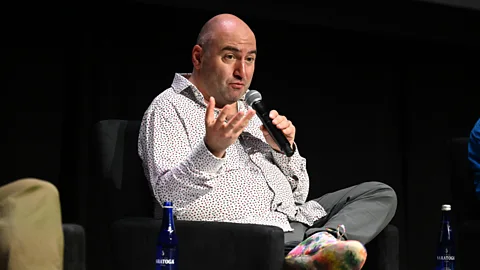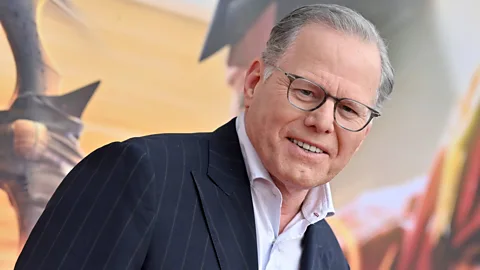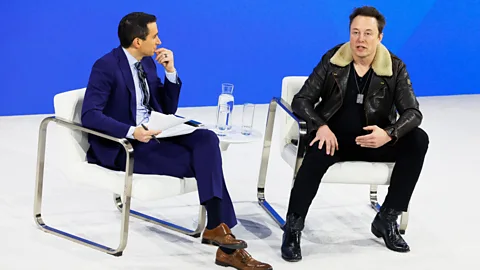Corporate missteps have been on full display during a tumultuous, unprecedented year in business and work.
It hasn't been a smooth year in the corporate world for top brass. In an uncharted post-pandemic workplace, uncertain economy and environment of rapidly-shifting shareholder and employee priorities, business leaders have had to take high-stakes decisions without precedent.
"We've seen some leaders struggle to move forward with their business models in a new age of higher interest rates and greater employee demands," says Christopher Kayes, professor of management at the George Washington University School of Business, in Washington, DC. "Many are operating from the same playbook of the pre-pandemic era – when workers were more compliant and had less leverage.
Although there have been plenty of successes, many CEOs stumbled – in several cases, they've left their posts or been asked to step down by their boards in record numbers as a result. Among them, five missteps stood out as cautionary tales of modern management.
 Getty Images
Getty ImagesInflexible policies at Grindr
Leaders and workers have been struggling over return-to-office policies for years; in 2023, many bosses chose to assert their power.
While many employers and employees found middle ground on hybrid arrangements, in August, CEO of dating app Grindr George Arison announced a sudden, inflexible return-to-office ultimatum for workers: come into the office twice a week, or take severance in October. While this policy worked for some people who already lived close to Grindr's "hub" cities of New York, Chicago, Los Angeles, San Francisco and Washington DC, it also meant scores of workers hired remotely would need to scramble to relocate – or lose their jobs.
Kayes says Grindr's leadership failed to acknowledge the profound change its mandate would have on its workforce. "There's been a long-held, mistaken belief that being the boss simply means issuing edicts or demands, and that people will follow. That's certainly no longer the case: when you make a big policy change that affects employees' lives, you need to consult them first. Grindr failed to do that."
Larry Robertson, a Sydney-based leadership coach and author, agrees Grindr's leaders failed in their duty to communicate their rationale with employees. A lack of notice alongside a hard deadline also rushed employees into making major life choices on the backfoot.
 Getty Images
Getty ImagesCustomer alienation at Reddit
As the rocky economy drove companies to worry about profits, many businesses looked for alternative revenue sources to shore up balance sheets.
In April, as it prepared for IPO, Reddit said it would begin charging for access to its application programming interface (API), the framework that enables third-party apps to be built around first-party data. API access is critical for users to both participate in and moderate content on the community's subreddits.
In a June post on Reddit, CEO Steve Huffman also announced the social media platform would enforce data-rate limits in July, leaving third-party app developers scrambling to implement changes to keep their software working with Reddit's first-party framework.
"Reddit needs to be a self-sustaining business, and to do that, we can no longer subsidise commercial entities that require large-scale data use," wrote Huffman. While this may have been a good idea for long-term profitability, it came at the cost of the consumer relationship. Popular apps subsequently closed, the Reddit community protested and subreddit moderators enforced blackouts.
Kayes says that while Huffman's decision made financial sense, it alienated some of its dedicated userbase, perhaps permanently. "Free platforms like Reddit have to make bold business moves if they want to generate funds and appeal to investors. But they should still include the customer's voice in how they move forward – the problem here came in the implementation, and how it was communicated."
Robertson believes Huffman's explanation should have gone further. "If you're making a major change to a customer offering, especially one that's very popular, you need to communicate how it'll benefit them in the longer term. So, it's not just defending yourself in making a bottom-line decision, it's explaining to the customer how they can receive an even better service in the future."
 Getty Images
Getty ImagesIn 2023, collective organising was at its highest level since 2019, resulting in a slew of high-profile strikes.
In October, Mary Barra, CEO of General Motors, became the first of the "Big Three" automakers to negotiate an agreement with United Auto Workers (UAW), six weeks into their sweeping strike. By that time, however, the company had already experienced losses of more than $1bn (£795m). Striking the deal – widely seen as a huge win for workers – helped stop GM from haemorrhaging revenue, as employees went back to work.
Despite the fact workers and management were able to end the labour stoppage, Robertson says Barra's initial failure to appreciate the demands and power of the union resulted in major revenue loss as the strike dragged on. This was compounded by the fact Barra had been at the company her entire career.
"Often at big corporations, CEOs are hired hands, paid large salaries to move between companies. But Barra actually grew up with the company – she should have understood the sense of loyalty, belonging and community among auto workers," he says. Instead, Robertson believes Barra misread the determination of the UAW.
"They were underestimated: in reality, workers have more power now than in the past. A CEO in a major corporation that is unionised should be able to bring their leadership on-side early, listen to them and understand what fundamentally drives them. It's possible to find common ground, that you're all working together for the benefit of the organisation, helping to build relationships – rather than be adversarial."
 Getty Images
Getty ImagesDramatic cost-cutting at Warner Bros Discovery
Sometimes CEOs are brought in to shake up a corporate status quo. When David Zaslav oversaw the 2022 merger of Warner Bros and his smaller cable company, Discovery, his tactics rattled many industry insiders.
Tasked with turning a profit amid more than $55bn (£43.8bn) in debt, Zaslav began issuing studio-wide cuts, including cancellations of films that had already been made, and mass layoffs that lasted throughout 2023.
In June, he announced Warner Bros Discovery would eliminate Turner Classic Movies, a channel hugely popular among cinephiles. The community was so shaken that legendary Hollywood filmmakers Steven Spielberg, Martin Scorsese and Paul Thomas Anderson held a summit meeting with Zaslav.
Kayes suggests Zaslav's business plan was naïve: to succeed, he would have to make cuts in an industry famed for superstar talent, blockbuster productions and emotionally engaged consumers and workforce. "That approach may work in the cable industry where there may be less star power and influence, but Hollywood is very different," he says. "Here, it appeared as though he was taking on everyone."
Low public sentiment on Zaslav's leadership also may have helped galvanise the Writers Guild of America (WGA) and Screen Actors Guild (Sag) strikes that shut down the industry for much of the year, says Kayes. "In the end, Zaslav was even taking on movie directors, some of the most powerful, influential and popular people in the world. In turn, he was cast as the Hollywood villain."
 Getty Images
Getty ImagesA hostile takeover at X
Since its deal-closing in November 2022, Elon Musk's Twitter takeover has been the subject of many questionable business decisions.
Throughout 2023, the billionaire founder of Tesla and SpaceX rebranded the social media platform to "X", laid off around 80% of staff and lost an estimated $75m (£69.7m) in advertising revenue after he endorsed an antisemitic conspiracy theory in late November.
Robertson believes Musk's unconventional leadership has failed in a company that already had an established following and singular work culture. "At SpaceX and Tesla, companies he founded, he could build from the ground up and grow a community of loyal followers as he took on space and eclectic vehicles," he says. "But Twitter was an organisation that had its own ethos, with workers used to a very different style of leadership."
Kayes describes Musk's decision making as "erratic". This includes recently attacking brands that had paused advertising on X, and stripping headlines from news article links posted on the platform. "People may not mind seeing unconventional behaviour from leaders when it makes them stand out as unique and visionary," says Kayes. "But once it veers into unpredictable and emotional territory, completely untied to conventional business norms, it becomes unsettling."
He adds X still has many problems to solve going into 2024. "There remains ambiguity over who its leaders actually are – its new CEO [Linda Yaccarino] was announced in June, yet it's Musk that still seems to be pulling the levers and making public statements. That's led to broader concerns, declining monthly active users and advertising revenues falling by more than half."
Taking lessons into 2024
As the business world evolves, so has the role of the leader. Once expected to merely serve the bottom line, executives now face greater demands from all types of stakeholders, while economic conditions and workplace culture both continue to change.
"It's harder to be a leader now," says John Clifton, CEO of global analytics and advice firm Gallup, based in Washington, DC. "This period emerging from the pandemic has been harder in some ways than 2020 itself – from inflation spiralling out of control, issues around hybrid working and a workforce that feels lonelier than ever. It's an incredibly challenging time for executives, undoubtedly."
The corporate failings of 2023 may provide some guidance, though – even if it's simply what not to do.
"Leaders serve the organisation – and that includes employees," says Robertson. "The world has changed so much, but many leadership tactics haven't. So much of it comes down to communication, listening and having purposeful conversations so people feel included, respected and heard. Otherwise, that's when resentment builds and trust breaks down."

.jfif)
Post a Comment